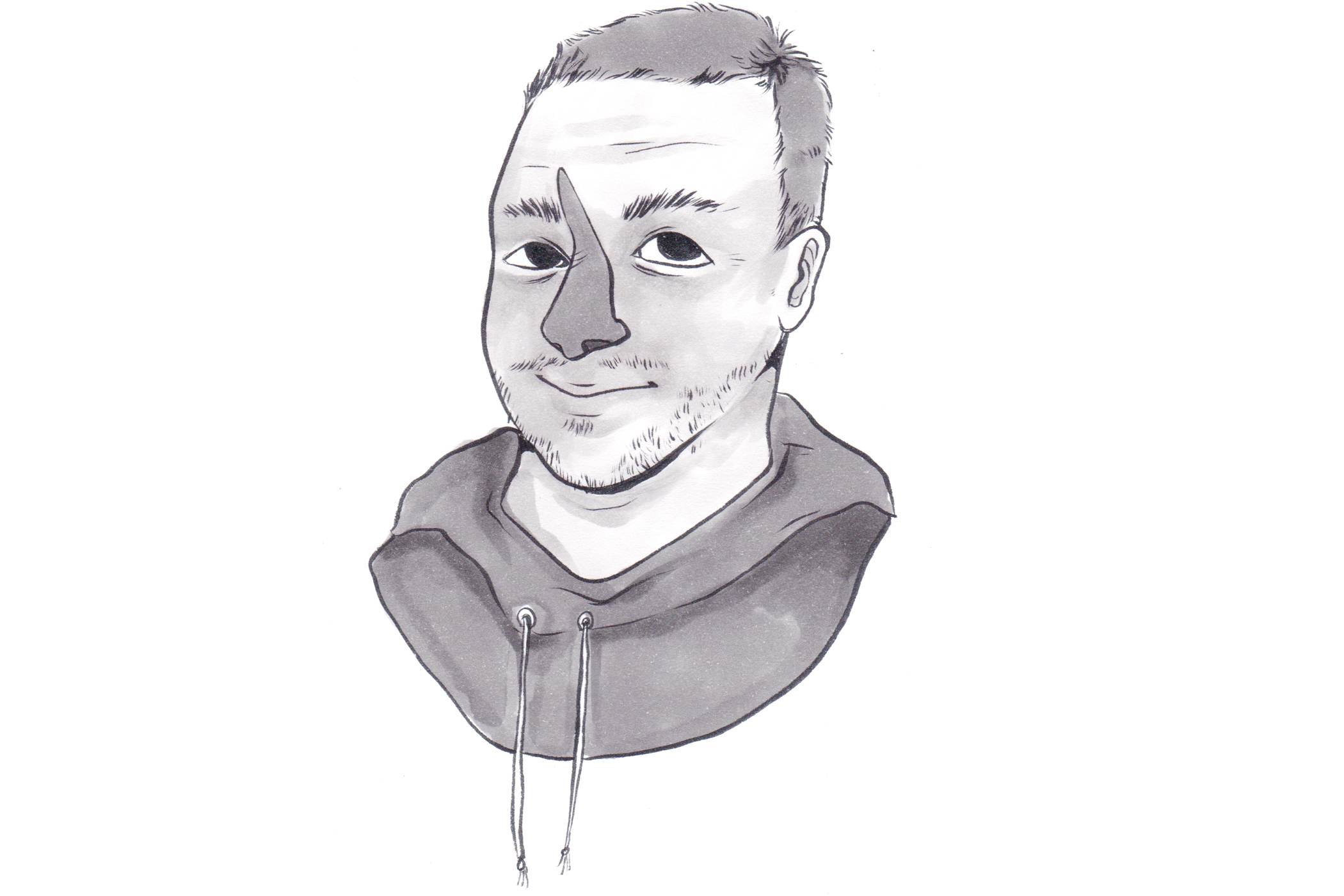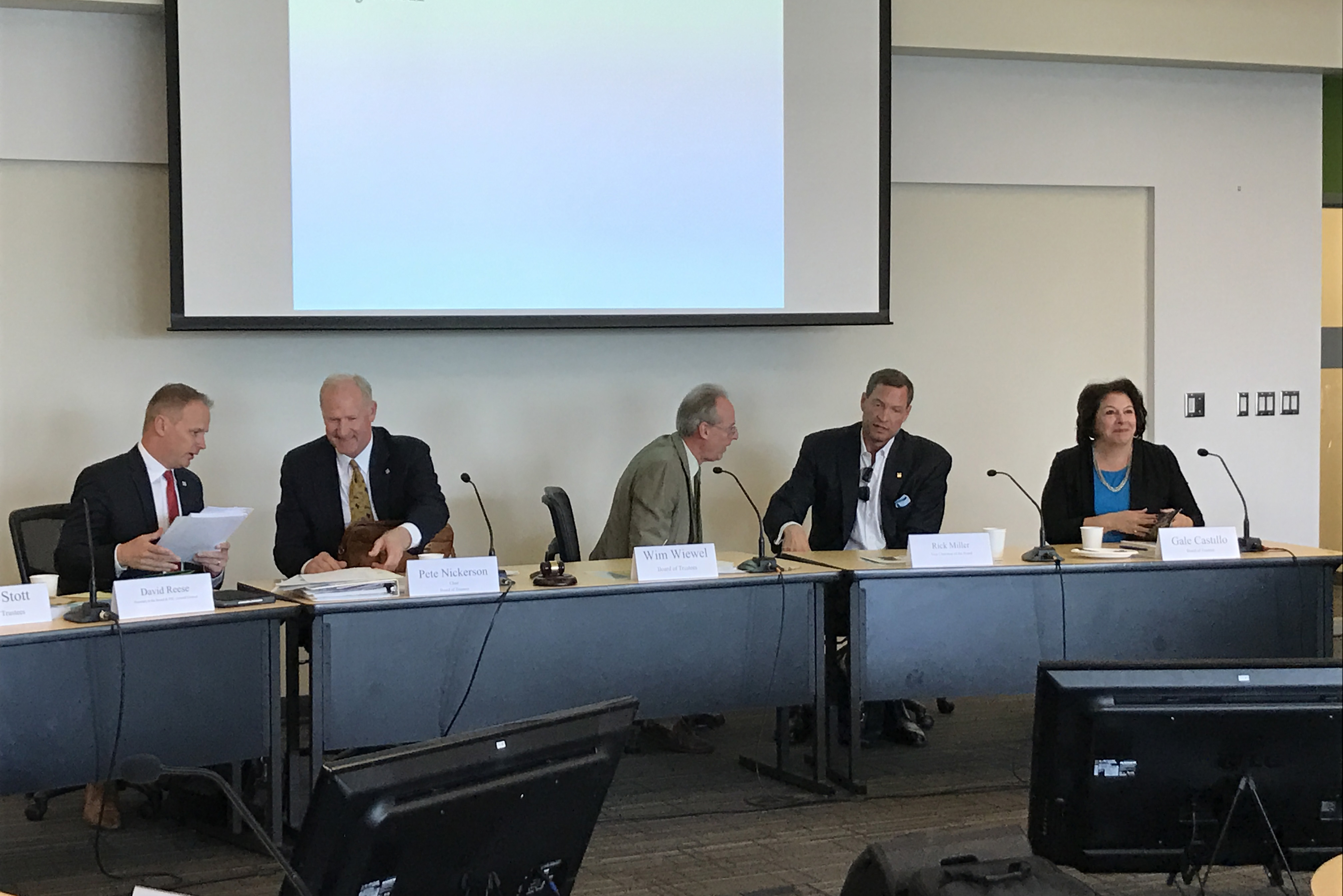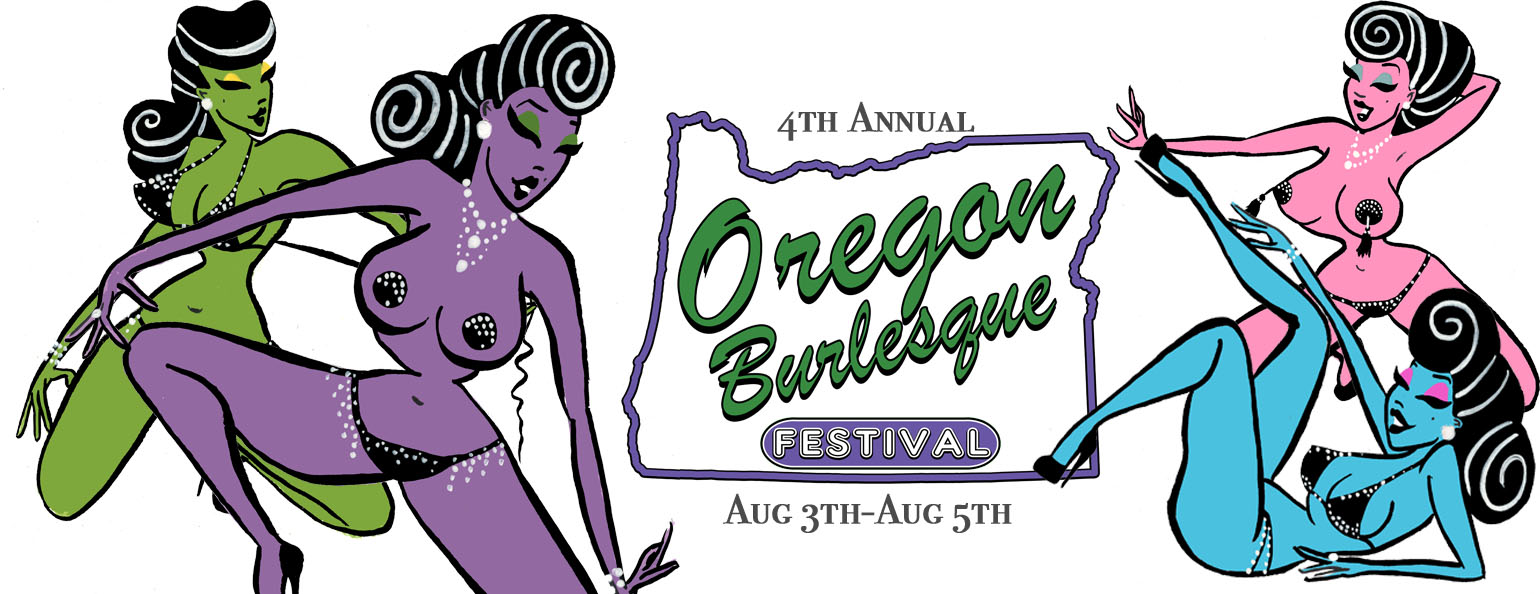Daniel McGowan, former radical environmental activist and political prisoner, engaged an audience of students, community members, seniors and activists packed into two small rooms in Smith Memorial Student Union on April 7, 2017. Attendees listened to McGowan present his activist experiences while advocating for a broadening scope of radical political movements and supporting prisoners currently struggling in custody.
McGowan, a college-educated anarchist and son of a New York City police officer, was arrested by federal marshals on Dec. 7, 2005.
McGowan was charged with arson and property destruction for crimes he committed four years earlier while he lived in Oregon. As a member of the radical environmentalist group Earth Liberation Front, McGowan fought to stop old-growth logging and introduction of genetically modified organisms into the environment. ELF’s methods included two incidents of arson at Superior Lumber in Glendale, Oregon and Jefferson Poplar Farm in Clatskanie, Oregon.
By strict definition, anarchy is a system in which there is no government and no hierarchy of power in society. Anarchists have participated in the civil rights movement through civil disobedience, protest against urban sprawl and deforestation, and criticism of elitist power structures.
In many cases anarchists have called for direct action involving arson or destruction of property. However, protests, fundraising, and lobbying have been just as big a part of anarchy’s history.
McGowan was arrested over 12 times at the beginning of his activism career. “I kind of burnt through a lot of the different tactics that our movements use,” McGowan said. “Including some of the more mainstream ones like writing letters and lobbying and things like that back in New York.”
McGowan moved back to New York in 2001 to live with his partner at the time and work at WomensLaw.org. McGowan was one of seven ELF members arrested on the same day. He was indicted after a conversation with a former co-activist was wiretapped.
As the events of 9/11 were still fresh in 2005, McGowan believed “the Department of Justice was on a path to indict old crimes.”
McGowan’s charge included a domestic terrorism enhancement, though his actions did not harm any lives or government property. McGowan was supported financially and socially through members of the anarchist community throughout his incarceration, but he became famous for his recounting of life in an ultra-secure Communications Management Unit in Marion, Illinois, which was originally built to house prisoners from Alcatraz.
In the Huffington Post’s series of articles on McGowan’s unusual journey through the prison system, McGowan detailed how prisoners were kept in solitary confinement for 23 hours at a time. He could no longer hug and kiss his wife during visitation, but instead had to talk to her through a monitored telephone across a thick pane of glass. Civil liberties groups like the National Lawyers Guild contested McGowan’s “terrorist” designation, as his actions had only resulted in property damage.
Attendees of McGowan’s talk included not only black neckerchief-clad PSU students donning anti-Nazi patches and combat boots, but also environmentalists, community anarchist supporters, and senior citizens.
One such community member, Cindy, who requested the Vanguard not publish her last name, said, “If we don’t shake things up a bit, make a stink, nothing will change.” Cindy flaunted a “Vegan for life” tattoo on her left forearm and said she works with Northwest VEG, an organization that helps people transition to plant-based diets.
Another attendee had the Anarchist Black Cross symbol—a fist rising from a cross—tattooed to his arm, while his neighbor drank from a water bottle adorned with a “Support Daniel McGowan” bumper sticker.
At the back of the room, representatives from the Portland Anarchist Black Cross held a table of postcards with prison addresses of political prisoners so attendees could write them support letters, as well as political stickers, one of which read, “Good Night Alt-Right.”
Justin Floyd, a PSU alum and organizer with Portland ABC, said the ABC does “basically anything we can do to put prisoners on blast or to provide material support for them.” McGowan was a recipient of fundraising and support letters sent by ABC members and workshop participants and reached out to Portland ABC to help advertise his visit and distribute his zine about Communications Management Units.
Addressing anarchist’s media reputation, particularly after recent anti-Trump protests, Floyd, like McGowan, stressed that the public likes to focus on the most “spectacular” crimes committed by anarchists, such as arson or property destruction, rather than the ideologies behind them.
“We at the Anarchist Black Cross and other anarchist communities across the U.S. immediately noticed when people like the Oregonian or Fox News or others immediately threw us under the bus,” Floyd said. “Same with the Portland Police Bureau.”
McGowan said he chose to leave the ELF when he realized his actions did not agree with his morals. Though he said he did not want to tell other anarchists how to go about their activism, McGowan warned the audience against the cycle of ineffective actions that leave some activists “burned out.”
For more on anarchism in Portland, contact Radical Education PSU, the student organization that sponsored McGowan’s visit. Students can also attend a Portland ABC meeting, workshop, or letter-writing group to get involved with the community.






